Inspiration struck at the top of Mount Kilimanjaro. Two friends, Haya Al-Ghanim and Amina Ahmadi, the co-founders of Oola Sports, made it to the summit of the Tanzanian mountain. They wore sports clothing that was appropriate for the conditions, but it did not give them the coverage they desired.
So began their visionary mission to create a range of high-quality modest fitness clothing, suitable for women across the Middle East.
That arduous climb took place in January 2015, and was the start of a long journey.
Haya, who was Innovation Director at Qatar Science & Technology Park, explains: “While we were training for Kilimanjaro, we really wanted to train outside, but we were struggling to find something to wear that was appropriate.”
Amina says: “We knew at that point that we wanted to do something about it, but it was the experience of Kilimanjaro itself that brought Oola to life. We made up our minds that we were going to go back home and take action.”
Oola Sports now provides women with modest, loose-fitting activewear that performs well in action and aligns with their cultural values.
Made from functional cutting-edge fabric, the sleek kit replaces the multitude of items Haya and Amina had to cobble together previously in order to cover up.
They found that other women were also searching far and wide for appropriate gear. They realised there was a huge unmet demand for modest long-sleeved sportswear made from ultra-modern technical fabrics.
So, on their return from Africa, they teamed up with Lilian Gabriel Barbosa, a fashion designer with a background in physical therapy. She embraced the challenge of designing a line of activewear that is loose fitting and stylish, without compromising on sports and fitness performance.
They launched in June 2015, partnering with Behold, and leveraging Indiegogo crowdfunding.
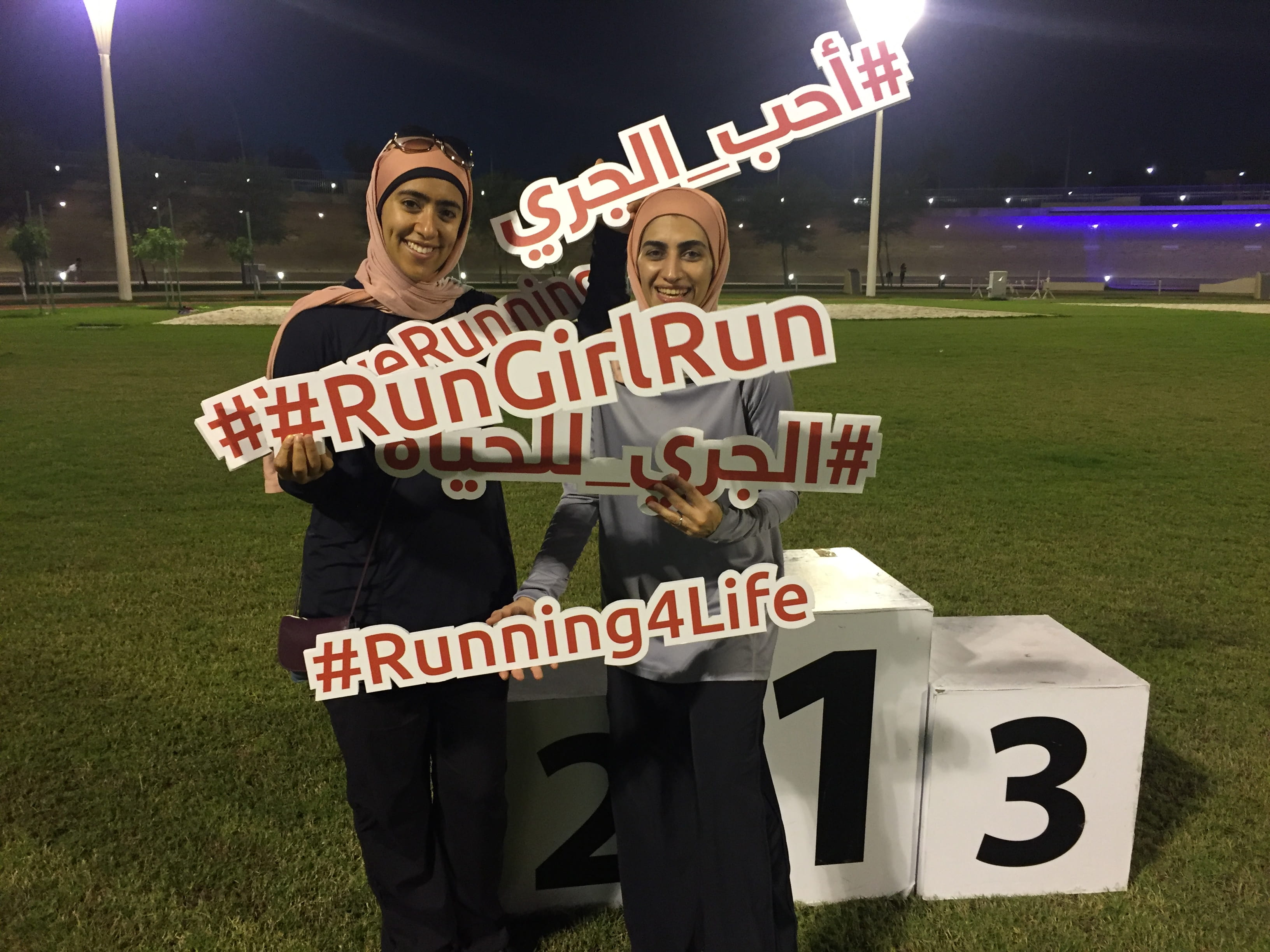
Businesswoman Haya used her experience in creating support programmes for entrepreneurs, including accessing accelerator and investment funds, to push the process forward.
She says: “I’ve been working with entrepreneurs for my entire career. Being so close to the entrepreneurship ecosystem and enabling entrepreneurs certainly inspired me to form a team to solve the struggle of exercising outdoors for many women.
“While forming a community around outdoor sports, I used lessons learned from forming a community of entrepreneurs in Qatar and globally.”
She adds: “I grew up believing the sky is my limit, thanks to my upbringing and the support available for us in Qatar. My family encouraged me to learn, explore and pursue what I enjoy.
“Their support, coupled with the incredible support we get from the government in terms of education, career development opportunities I got through Qatar Foundation, as well as the incubation of Qatar Business Incubation Center, all paved the path to get Oola to where it is today.”
After a rigorous process of sketching, multiple visits to factories around the world to identify suitable trade partners and numerous prototype iterations, a first collection of Oola sportswear was produced.
It included various sport headpieces, and a multi-sport top. This was followed by other styles, including trousers and jackets.
Haya says: “Modesty is a relative value that varies from one person to the other. We want to provide modest sportswear options to as many women as we can. Providing variety is something we aspire to – this is not a ‘one-size-fits-all’ solution. Women need a range of clothing to suit different needs.
“I want Oola to become the comfortable, stylish option for women seeking function and fashion.”
These energetic businesswomen hope to inspire and empower a new generation of Qatari women to get fit.
Haya says: “My hope is to impact the health and wellness of the next generation. Giving women access to outdoor sports means their children and younger relatives will join in too. This will, hopefully, have an impact on their lifestyle, making it more healthy.
“Given the link between physical activities and metabolic diseases, such as diabetes and obesity, encouraging healthy lifestyles should make the next generation healthier, more active and more productive.
“I’m proud of Oola every time I see a woman wearing our outfits, working out outdoors and sweating. This brings pure joy to my heart and makes me forget about all the challenges of setting up a new business.”
And, of course, there is another upside to Oola’s continuing success. Haya says: “Now my sports bag is lighter, and I get the coverage I want and look fashionable. It is win-win.”
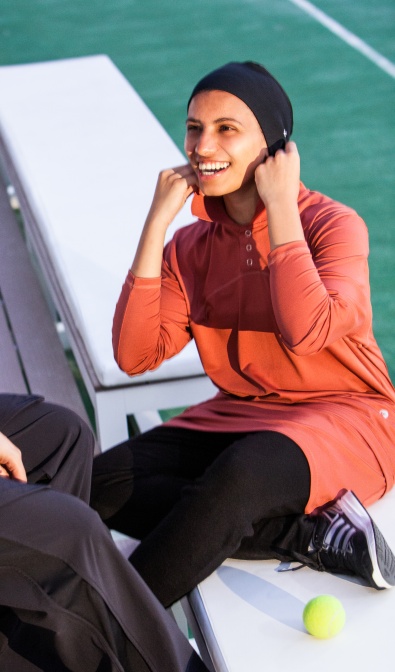
Oola means ‘the first’, or ‘the pioneer’. The young entrepreneurs believe every woman is a pioneer in her own life and Oola reflects this ethos.
Oola Sports sells clothes specialising in cycling, hiking, running, golf and tennis.
You can buy their products in stores in Qatar and the UK – and online around the world.
“My hope is to impact the health and wellness of the next generation. Giving women access to outdoor sports means their children and younger relatives will join in too. This will, hopefully, have an impact on their lifestyle, making it more healthy.”
– Haya Al-Ghanim
As a young teacher in Botswana, Mary Joy Pigozzi wanted to help children get ahead in education. She surely could not then have imagined how many youngsters she would be able to reach.
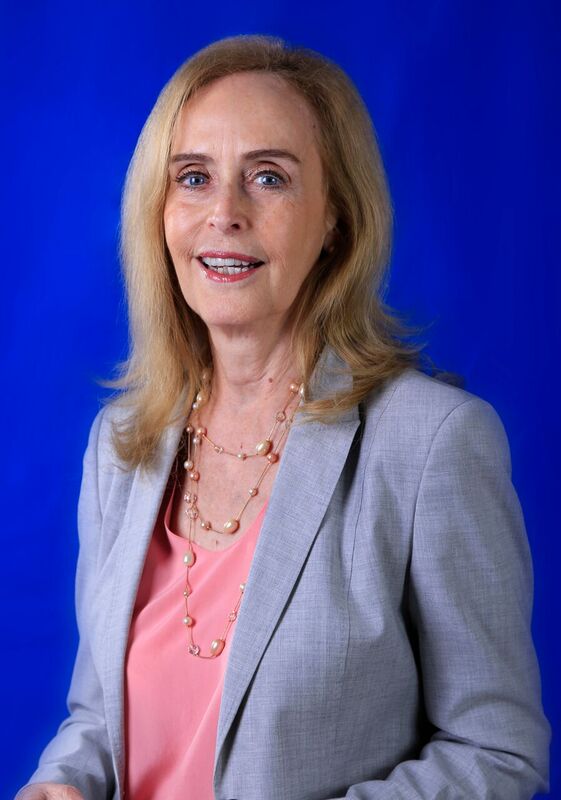
After a career that has spanned leadership roles at UNICEF and UNESCO, Mary now works as Executive Director of Educate A Child (EAC) – part of Education Above All Foundation (EAA) – which has just achieved its ambitious goal of committing to educate ten million out-of-school primary level children.
She has worked at EAA since 2012, profoundly changing the lives of marginalised young people unable to access quality education.
She says: “EAC has had a wonderful opportunity to influence the life chances of millions of children. This does not happen very often.
“The barriers include poverty, geography, all forms of discrimination, infrastructure, poor quality education, and conflict and disasters – these are all barriers that the children did not create.”
Her work, which focuses on ‘hard-to-reach children’, also has much wider benefits, she explains. “In addition to contributing to changing children’s lives, the programme has helped families and teachers. It has brought the global situation of out-of-school children into sharper focus.
“It has shown how different approaches are needed for different contexts, and it has broadened and deepened the knowledge base about out-of-school children.”
Whether they are children living in remote rural areas, such as the nomadic populations of Mali, or in challenging natural environments, such as the flood plains of Bangladesh, in severe poverty and sent to work as in Haiti, or in the conflict areas of Syria and Yemen and nearby refugee camps, EAC aims to reach all out-of-school children.
“Thanks to the vision and strength of our foundation’s founder, Her Highness Sheikha Moza bint Nasser, EAC has been able to carve out a path to use a strong partnership model to help children overcome the barriers that prevent them from realising their right to a quality primary education.”
Pigozzi has designed and led an ambitious and innovative programme to support partners in identifying and enrolling 10 million out-of-school children at the primary level. Based in Qatar and working with a small team, Pigozzi has built the necessary systems to manage and monitor over 65 projects in 50 countries. The team has received two international awards for innovation in education, and total funding for EAC projects has hit $1.4 billion.
Having previously worked on some of the most critical issues in education, such as the expansion of girl’s education, the HIV/AIDS epidemic, disrupted schooling in conflict and post-conflict countries, and overall access to quality education, Pigozzi is not fazed by the challenges ahead.
She acknowledges that having such an ambitious target has been hard, however. She says: “Days are long, weekends are short and, often, holidays are cancelled – but it is worth it. I am concerned that we look not at the 10 million target and see it as achieved. Now is not the time to rest on our laurels – there are still 63 million out-of-school children at the primary level.”
It is certainly satisfying work. She says: “Honestly, I am humbled every day by the amazing commitment of the many people who are so concerned for and dedicated to out-of-school children – the entire team in Education Above All, starting with our CEO, Fahad Al Sulaiti, to each of our partners in 50 countries, to the thousands and thousands of people on the ground who work tirelessly in the projects.
“It has been a privilege to live here and begin to better understand the generosity and ambition of this country, to have been able to contribute to how it is perceived overseas while having the chance to make a difference in so many futures.”
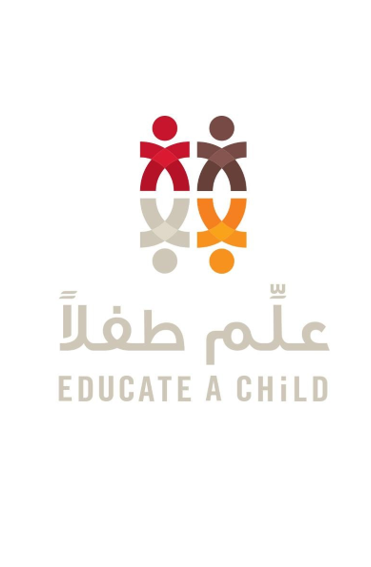
Education Above All Foundation (EAA) was founded in 2012 by Her Highness Sheikha Moza bint Nasser. Its aim is to build a global movement that contributes to human, social and economic development through the provision of quality education.
With a focus on those affected by poverty, conflict and disaster, it champions the needs of children, youth, and women to empower them to become active members of their communities.
How did it feel to bear Qatar’s flag at the opening ceremony of the 2012 Olympic Games?
It meant so much to me – it was my dream to compete in the Olympics and raise the flag for Qatar at such a major sporting event. Bearing my nation’s flag was the best feeling ever. I was so proud and so happy knowing that I was carrying my country’s flag and that the whole world was looking at me at that moment. I wanted to deliver a message to the whole world that Qatari women can achieve greatness on a global level.
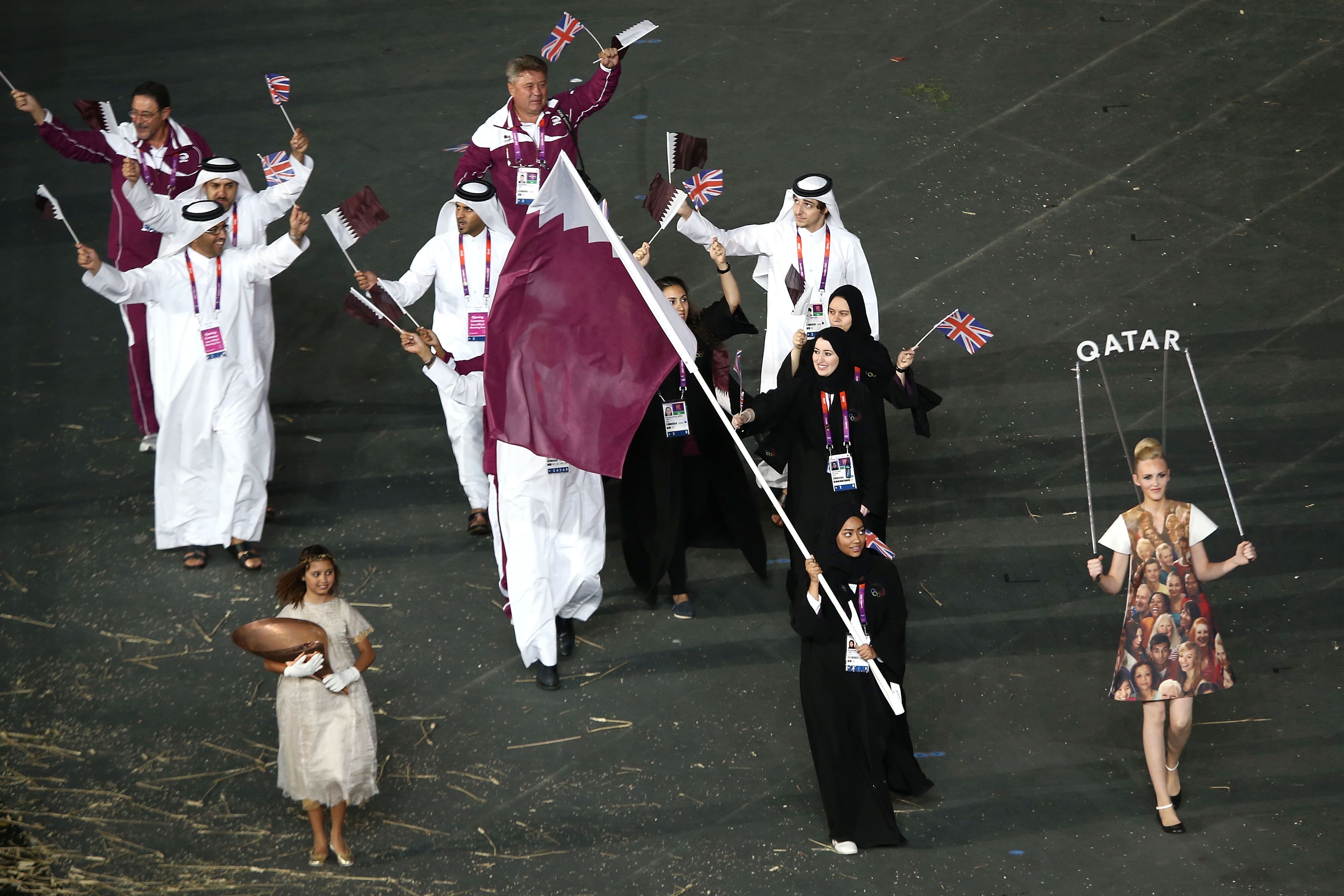
How did you first get into rifle shooting?
I was 15 years old and in high school when I first took up shooting. At the beginning it wasn’t my intention to become a professional, but after two weeks of training, I felt that this was my place and I loved this sport. My role model in shooting is Nasser Al Attiyah. I get excited about every achievement he makes for Qatari sport and this inspires me to give my best and achieve more for Qatar.
What part of your work do you enjoy the most?
I enjoy everything about it, but the best part is when I pull the trigger and shoot the first bullet in a competition. The feeling then is a mix between happiness, excitement and suspense.
How has Qatar Olympic Committee supported your development?
It has played a great role in my development, always making sure that we have everything we need to give our best in our training and competitions. It pushes us to be bold and participate in every sporting event that will enhance our physical abilities and performance, from which we gain great experience.
What advice would you give to young Qatari athletes who want to follow in your footsteps?
My advice is to give their best in training, always make sure to listen and follow their coach’s tips and advice, and never underestimate themselves. Also, it is so important to sleep early, and follow a healthy and nutritious diet.
How about female athletes – do you think that Qatar will see more women getting into professional sport?
Absolutely. There are already many Qatari women who are playing sport at a professional level. The number is increasing and the level of performance is improving. I’m proud to be a role model, and inspire and empower more young girls to follow their sporting dreams. Success doesn’t happen overnight, but we are seeing more and more achievements at the local and regional level, and we know that this will continue to improve in the future. Qatar has all the foundations in place and is supporting its female athletes in every way possible.
DFI has worked tirelessly to promote community-wide film appreciation by providing cinematic education, financing film production and networking opportunities, and investing in new talent.
The Institute’s vision is to serve as a springboard for new filmmakers and to create dynamic platforms that will strengthen their skills, showcase their creativity, and help them to build international partnerships.
Today, DFI is recognised as a platform that drives independent voices in cinema. It has created a dynamic talent pool, which is creating a growing body of ‘Made in Qatar’ and ‘Qatar-supported’ international films that are attracting worldwide acclaim.
As well as developing current and future generations of creative producers, DFI contributes to the wider Qatari economy beyond filmmaking and its supply chain. The creative industry provides jobs, attracts investments, and generates revenues. It also promotes sectors such as tourism, aviation, hospitality and retail.
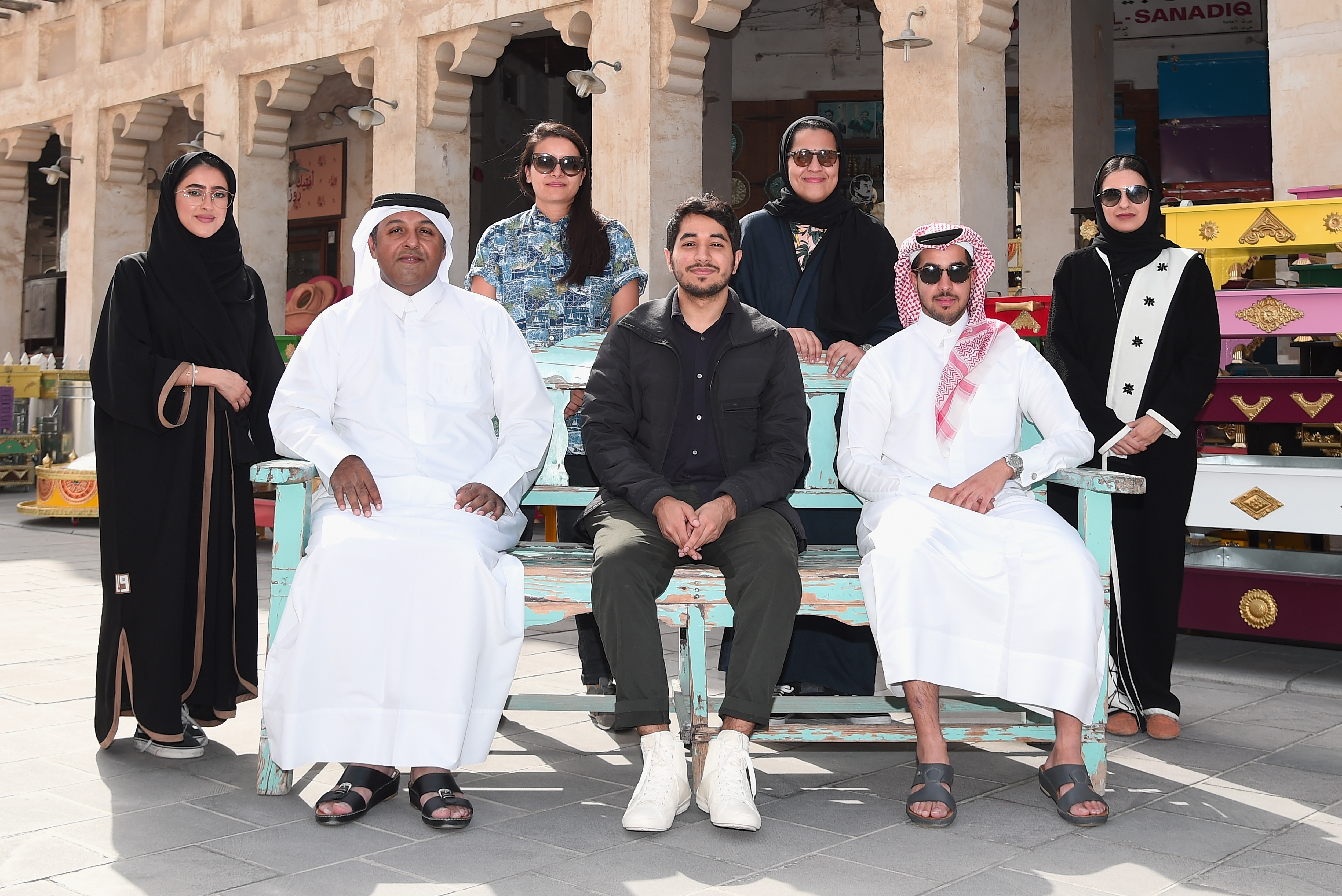
Voices and visions from around the world
Growing a vibrant creative and cultural sector is central to QNV 2030.
Qatar’s creative sector is helping to build bridges across the region and the world. DFI provides just one example of how Qatar provides a positive and vibrant growth environment where people from all over the world can work and live in harmony.
The Institute is making Qatar a leader in producing stories that promote cross-cultural exchange, encourage dialogue and authentically reflect the local region, people and culture.
Young men and women from all across the world use film to help dispel stereotypes and promote Arab voices to global audiences, and DFI is proud to play a part in this life-changing work.
The Next Generation of Talent
DFI has one overarching goal: to nurture and build the next generation of film talent in Qatar. As digital technologies bring unprecedented opportunities for the creative industry, DFI aims to make Qatar’s young men and women torchbearers of a new creative movement.
The Institute also continues to support meaningful cinema from across the world, led by young and emerging filmmakers.
The annual Ajyal Youth Film Festival builds on DFI’s history of community-based programming. The Festival empowers the region’s youth and fosters their creativity through the medium of film. It also showcases the works of emerging Qatari talent under its ‘Made in Qatar’ programme.
Ajyal, which means “generations” in Arabic, invites young people to experience cinema through award-winning films from both new and established talent, enjoy the engaging Ajyal Talks, and more.
Constructive criticism
Ajyal will once again bring together the young Ajyal Jurors, aged eight to 21, and provide them with an unparalleled opportunity to watch, analyse and discuss films from all over the world.
The experience of being an Ajyal Juror is invaluable for developing critical thinking, self-expression, and an appreciation of good cinema. Last year, Ajyal welcomed over 500 young jurors of 54 nationalities.
The fifth annual Ajyal Youth Film Festival was held between 29 November and 4 December, 2017.
‘DFI is just one example of how Qatar provides a positive and vibrant growth environment where people from all over the world can work and live in harmony.’
Founded in 2014, the Qatar Business Incubation Center (QBIC) has grown at an astonishing rate to become one of the region’s largest incubation centres in just three years. It strives to achieve the same levels of success for the many entrepreneurs and companies it supports.
QBIC is a leading mixed-use business incubation centre, providing support services to innovative entrepreneurs and companies that either have an idea for a business, or want to grow an existing scalable company.
The Center was established to provide all the necessary tools to help Qatari entrepreneurship thrive and flourish – including funding, office space, mentorship, and guidance. Qatar is focused on developing and heavily investing in the private sector as a means of diversifying the economy and establishing self-sufficiency, all part of QNV 2030.
QBIC shares these goals with its founders, QDB and Nama, leading government institutions that promote entrepreneurship in Qatar. These organisations strive to diversify the market by supporting and creating a strong sector of SMEs. QBIC supports that vision by providing incubation opportunities.
QBIC’s ultimate goal is to foster innovative ideas and help to create the country’s next business leaders. The long-term mission is to create the next QAR 100 Million companies in Qatar.
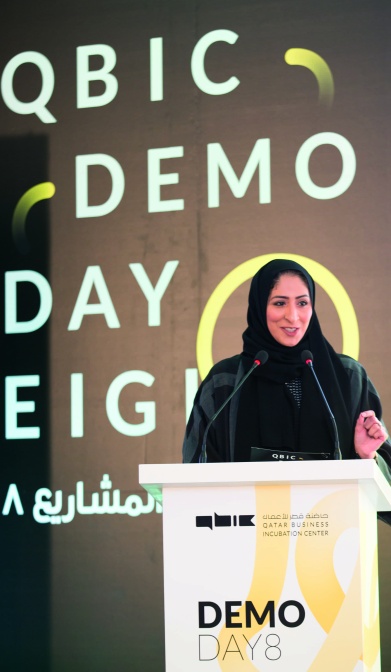
• 291 LeanStartUp graduates
• 2,677 applications to date
• 123 companies incubated
• 96% occupancy
• QAR 3.8 million invested
• QAR 21.4 million generated
Focus on the future
Qatar’s economy is very dynamic, experiencing rapid growth and change. It requires constant vigilance in order to identify and target the business sectors of strongest growth.
In line with QNV 2030, QBIC is focused on those specifically targeted sectors that will meet the country’s business needs. Every year QBIC tweaks its strategies and tactics to help its entrepreneurs navigate the fast-paced economy more effectively.
Specialist startups
QBIC partnered with Qatar Tourism Authority (QTA) to set up a specialised incubator, QBIC Tourism, which focuses on incubating start-ups in the tourism sector.
A second partnership with Ooredoo Qatar led to the specialised incubator Digital and Beyond, which works on start-ups with digital solutions. More specialised incubators, for industries with high levels of interest from prospective entrepreneurs and the general public, are being planned.
A fabulous future
QBIC will also be launching its very own Fab Lab. Fab Labs (Fabrication Labs) are small-scale workshops that are equipped with materials and the digital prototyping and fabrication tools required to make initial product prototypes.
QBIC’s Fab Lab will provide a platform for innovators, tech enthusiasts and budding entrepreneurs – with a major focus on Qatar’s youth – to develop prototypes, build their own products, and learn the skills and habits of a ‘maker’.
QBIC is working towards launching Fab Lab Qatar in the first quarter of 2018.
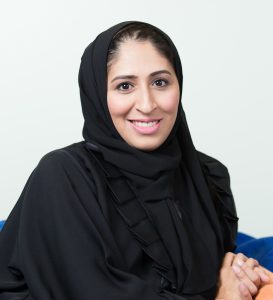
Aysha Al Mudahka is the Chief Executive Officer of the Qatar Business Incubation Center.
She is a founding member of the Roudha Centre, which promotes women’s entrepreneurship and innovation, and is a board member of the training and education organisation INJAZ.
She is also a member of the Global Shapers Community, a World Economic Forum initiative.
Ms Al Mudahka is a Qatari national born and raised in the State of Qatar. She has a strong academic background in business, and previously worked for the Qatar Financial Centre Authority and the Qatar Finance and Business Academy. She completed two executive education programmes at the Wharton School at the University of Pennsylvania and Carnegie Mellon University Tepper School of Business. She also graduated from HEC Paris with an executive MBA, and completed her undergraduate studies at the College of Business and Economics at Qatar University.
Al Mudahka was listed in the Top 100 Most Powerful Arab Woman for her work in entrepreneurship, in a ranking by CEO Middle East Magazine, and the 32nd most influential Qatari by Arabian Business Qatar.
International trade and investment form a key part of Qatar’s future growth and diversification, and the UK is one of Qatar’s most valued global economic partners. This is why in March 2017, the State of Qatar and the UK’s newly founded Department of International Trade hosted the Qatar-UK Business & Investment Forum in London and Birmingham.
The Forum highlighted the strong ties between the two countries and also showcased new opportunities in the bilateral relationship. Qatar’s 2030 National Vision was a pillar throughout the event, with both UK and Qatari officials emphasising the country’s ambitious development goals.
Speaking about the country’s long-term vision, His Excellency the Prime Minister Sheikh Abdullah Bin Nasser Al-Thani stated that “Qatar is going through an historic era in its quest to achieve sustainable development,” and that “this quest to transform into a knowledge-based economy requires a remarkable level of expertise in the fields of education, research and training, in which the UK is a pioneer.” The Forum explored areas for collaboration between the two countries as Qatar progresses towards its 2030 Vision, and resulted in a new Memorandum of Understanding between the UK Government and the State of Qatar, affirming Britain’s pledge to support Qatar’s ambitious goals.
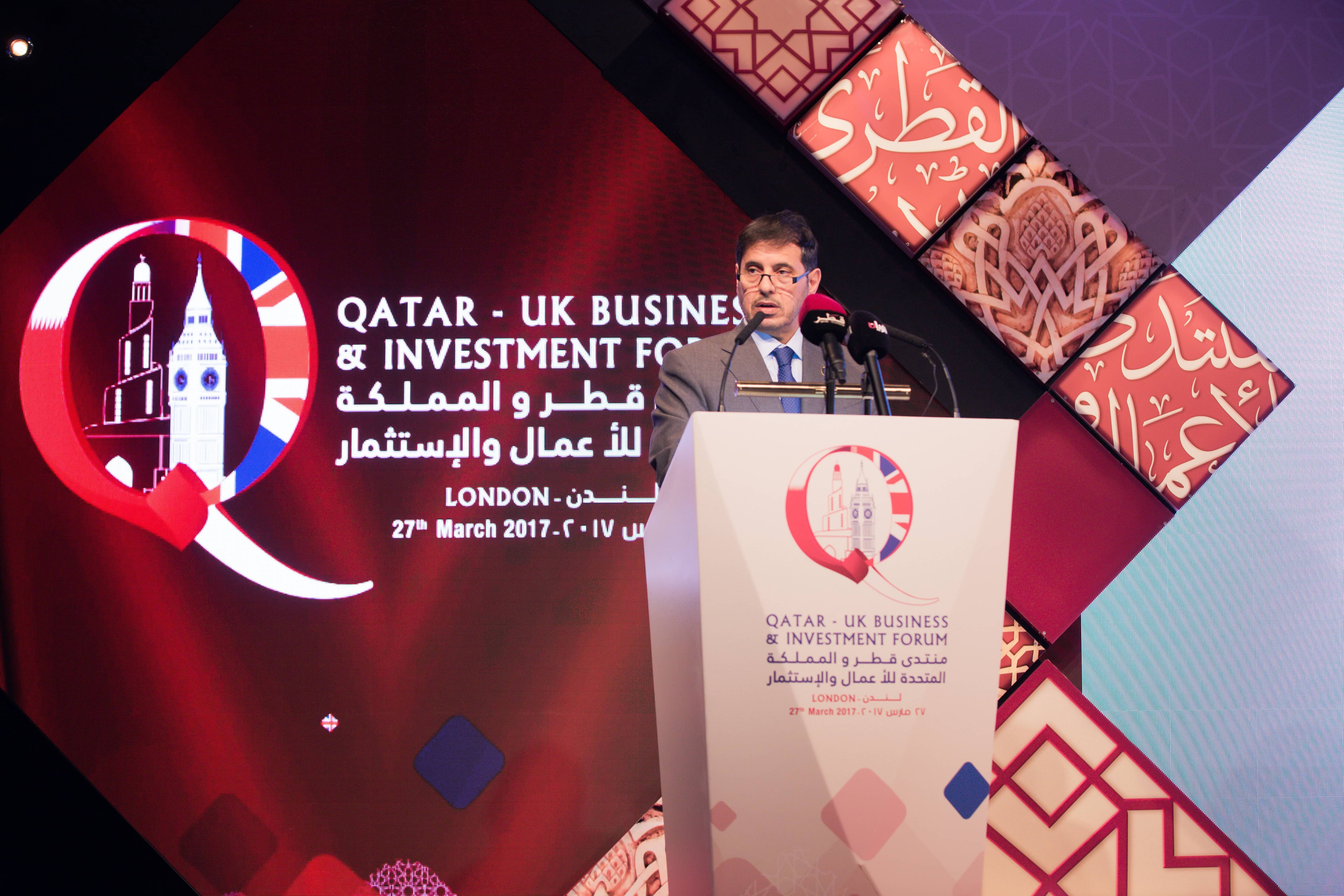
Speaking about the MoU, UK Prime Minister Theresa May remarked that it would deepen “co-operation between our governments and our businesses across a wide range of vital areas including education and healthcare, science, research and innovation, tourism and culture, transport, energy, financial services and the development of small businesses.”
As a signal of its continued commitment to the UK and its vital role as a long-term partner, Qatar pledged a £5 billion increase in its investments in Great Britain over the next three to five years. The announcement came shortly before the UK triggered Article 50 and officially began the process for Britain to exit the European Union. Speaking less than 24 hours before this historic moment, UK Prime Minister Theresa May referred to the Forum as a “prestigious conference which comes on the eve of one of the most significant moments that the United Kingdom has faced for many years” and stated that Qatar “will play a significant role in shaping a brighter future for Britain.”
The Forum reaffirmed both the UK and Qatar’s long-term commitment to deepening bilateral relations and trade ties as they each work to transform their economies for the future. In his closing speech, UK Secretary of State for International Trade Liam Fox called the event a “spectacular success,” and highlighted the “solid” and “dependable” nature of this partnership.
Part of the global Teach For All network, Teach For Qatar is a local non-governmental organisation working to enhance the educational experience of Qatar’s students.
Teach For Qatar plays an integral role in Qatar’s development by educating, inspiring and equipping Qatar’s future generations to shape the nation’s growth and success.
While education is recognised as being of paramount importance to Qatar’s future success, teaching is not currently considered a top career choice and too few of the best graduates go to work in the education system. This is what Teach For Qatar is actively seeking to address.
Teach For Qatar aims to help develop quality education in Qatar by empowering young talent to become transformational leaders in the classroom, school and community.
It encourages exceptionally talented leaders to work in the public school system through a two-year teaching and development programme known as the Leadership Journey.
The Leadership Journey also aims to promote the importance of teaching in preparing future generations for success, and its centrality in realising the Human Development Pillar of QNV 2030.
By working with its local partner schools to identify high-priority subjects, Teach For Qatar focuses on recruiting and training Fellows to teach English, Mathematics and Science at Grades 5 to 9. Arabic will soon be added as an additional subject area.
Teach For Qatar’s vision is for a nation of excellence in which all students are inspired and driven to achieve. Passionate and well-supported students become citizens with the necessary knowledge, tools and desire to play an active role in shaping Qatar’s economy and communities. These will underpin the country’s growth and prosperity for years to come.
Thank a Teacher
A major element of Teach For Qatar’s work is outreach into the local community to raise the profile and prestige of the teaching profession.
A significant recent initiative set out to encourage people across Qatar to recognise the importance their teachers have played in shaping their future.
The “Thank a Teacher” campaign, launched to celebrate World Teacher’s Day, received national acclaim. Young people across the country, alongside influential members of the Qatari community, used videos and social media to send messages of appreciation to their teachers, thanking the educators for gifting them with the knowledge and drive to become who they are today.
Be a Teacher
As promoting the value of the teaching profession is one of Teach for Qatar’s fundamental objectives, the organisation looks to maximise all opportunities to acknowledge the crucial role teachers play in society.
One of Teach For Qatar’s initiatives is a social media campaign called “Be a Teacher”, which allows | Teach for Qatar important community figures to teach real-life classes and gain first-hand experience of teaching’s many rewards and challenges.
The unique and exciting campaign launched in November 2017. Members of the community have the opportunity to nominate people they would like to see teach a class, with the whole campaign promoted on the organisation’s social media channels, @TeachForQatar.
The Hackathon followed in the footsteps of last year’s successful competition. This year marked the first time, however, that universities outside of Qatar also sent students to participate, with teams from as far afield as India and Australia, bringing a global edge to the event.
Under the guidance of Dan Phelps, Associate Professor of Information Systems at CMU-Q, the event gave students an opportunity to exhibit their programming prowess.
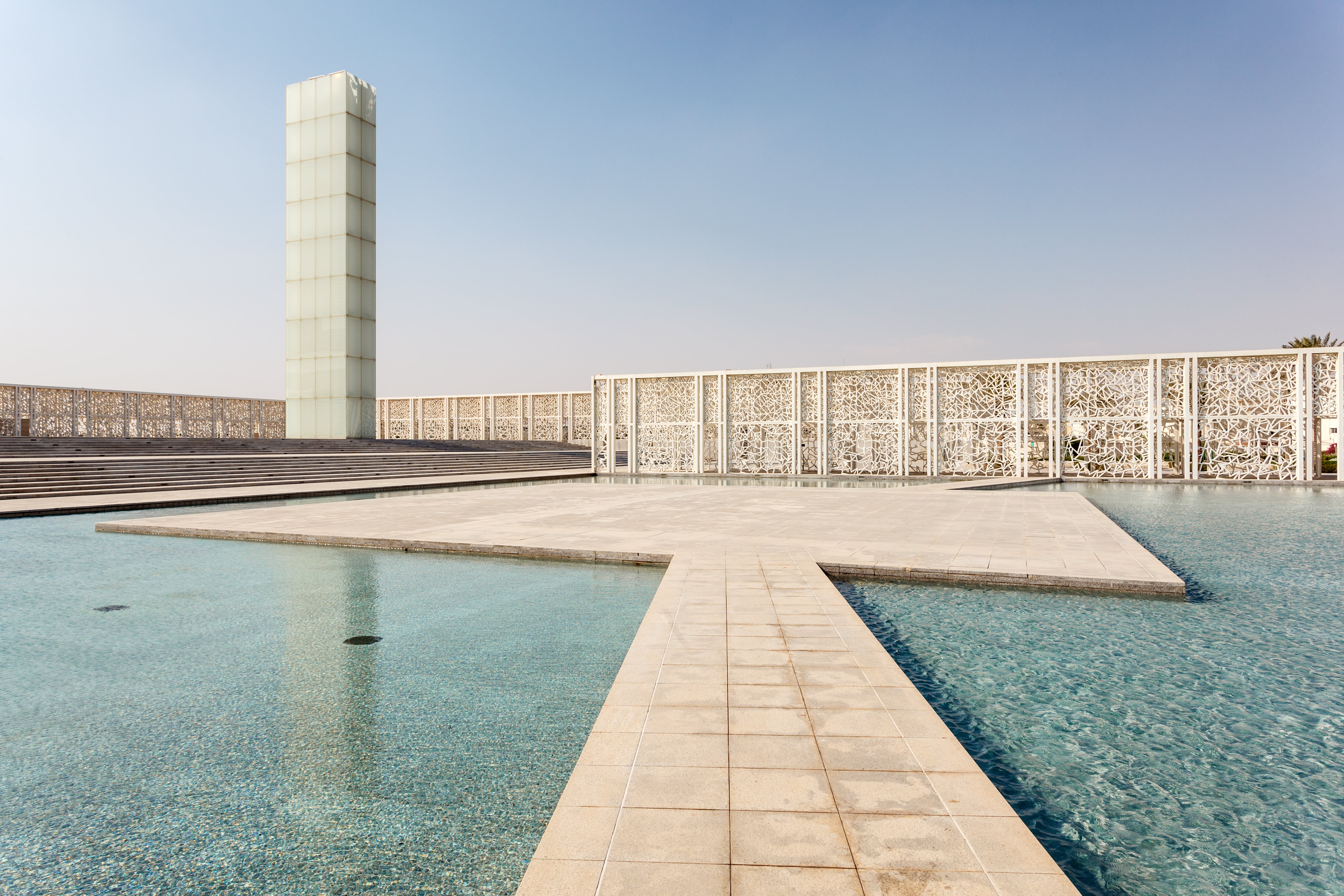
Over the course of the 24 hours, students worked around-the-clock to develop software for the five different prizes at stake: best design, most technically challenging app, best overall app, best rookie team, and best humanitarian technology. The final prize was a new category for 2017 backed by competition sponsor Education Above All’s “Protect Education in Insecurity and Conflict” programme.
According to Professor Dan Phelps, the competition allows students to “demonstrate everything they have learned … tackle one of the challenges … and apply their skills to help solve that problem in a real-world context.”
The “best humanitarian technology” prize challenged teams to consider the particular issue of children’s safety in conflict-zone schools. The winning team was awarded for innovative software that predicts regions where an attack is imminent or possible by collecting information and specific trend data from the web.
The competition is another example of Qatar’s commitment to a digital future, encouraging students to use technology and innovation to solve pressing global issues.
Every year in May, dhow boats appear just off the coast of Qatar, bobbing peacefully on the calm, blue-green Gulf water. The boats carry pearl divers, who intermittently descend to the seabed and rise with many pearl producing clams.
These divers are part of the annual Senyar competition, which commemorates Qatar’s prominent pearl diving past. The team that collects the most clams wins the competition and a $100,000 prize, but they don’t open the clams—preserving the pearls and the local ecosystem.
Prior to the discovery of oil in Qatar, pearl diving was one of the country’s main sources of income, and demand for pearls around the world kept the industry bustling.
Opening Qatar to the World
The job was not always safe, as divers faced a myriad of challenges: trips at sea that sometimes lasted six months, lack of fresh water, predators, and more. Divers tied weights to their feet to reach the seabed quickly and ropes to their waists to return to the surface. The most adept divers could stay under water for over two minutes, and to this day pearl divers continue to free dive, often unaided by advanced equipment.
But overcoming the challenges paid off—the sought-after pearls supported a large segment of the country’s economy for many years, selling across the globe, from India to Europe and everywhere in between.
Honouring a Maritime Tradition
With the discovery of oil, the country grew less dependent on pearl diving. And with the advent of Japanese artificial pearls in the 1930s, the industry lost its profitability.
However, the tradition of pearl diving remains an important part of Qatari history. Many families depended on it for decades, and— with many Qataris born and living near the coast—the sea has remained a prominent fixture in daily life. Thus, the annual Senyar was established to keep this vital aspect of Qatar’s cultural history alive.
When you visit Qatar today, you may not see too many dhow boats trolling the sea for pearls, but you will experience a rich, vibrant culture—one that thrived for many years thanks to the hard work of pearl divers.

Nasser Al Attiyah is not your average athlete. While some may know him as the man who won a bronze medal for Skeet shooting in the London 2012 Olympics, others may know him as a world champion rally driver.
How does one succeed internationally at two sports? Although some refer to him to as ‘superman’, Al Attiyah admits it is not always easy: “Juggling between two professional sports and feeling the pressure to be the best in both is very challenging.”
But, according to Al Attiyah, rally driving and shooting complement each other and allow him to excel in both. He has found that he can learn valuable crossover skills by training in both sports rather than one. He explains: “Shooting has helped me excel in rally driving because of the immense concentration needed. It helped me stay mentally strong.”
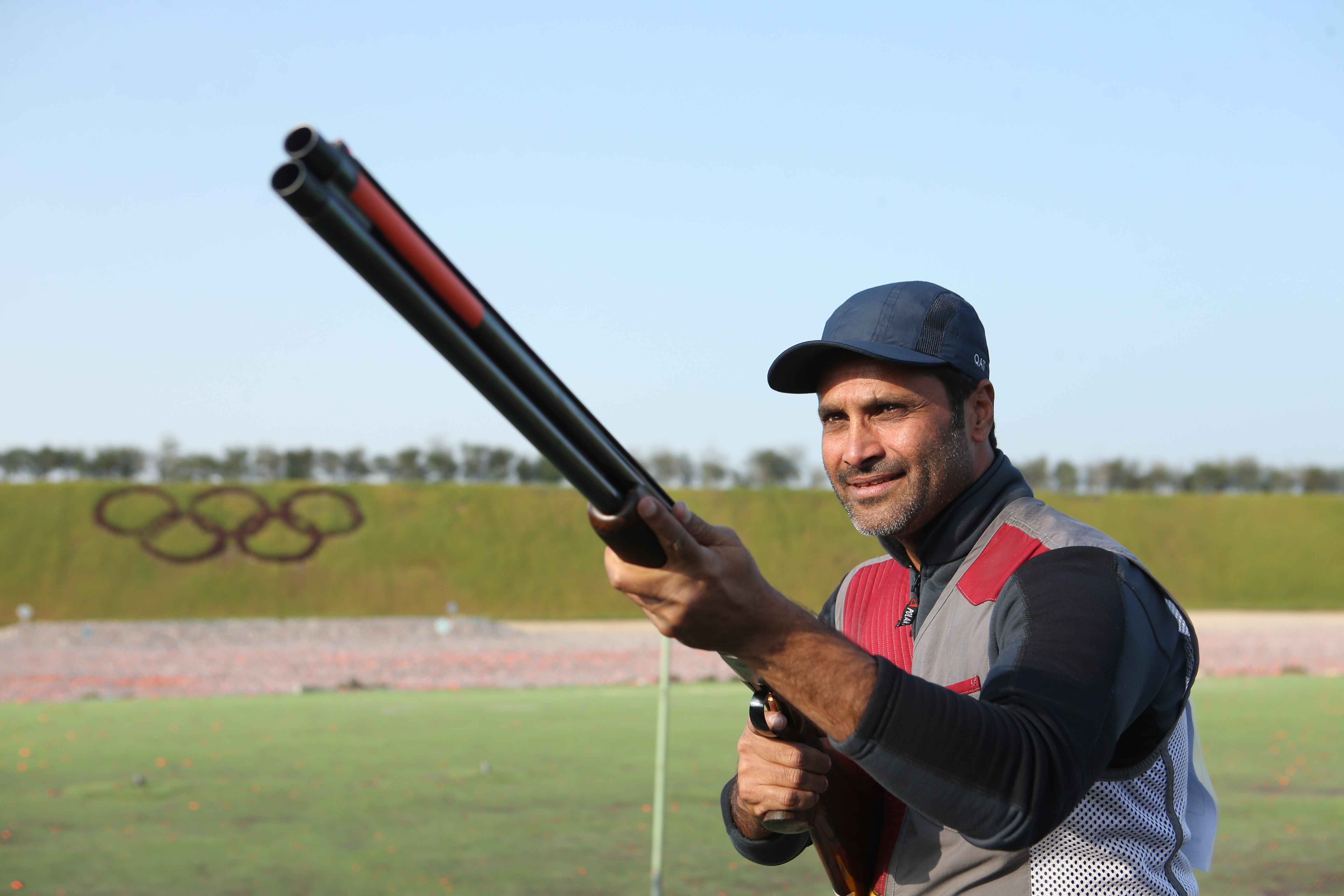
“To all aspiring young athletes, keep striving to achieve your dreams – age and ability should not be your limitation.”
– Nasser Al Attiyah
It was Al Attiyah’s dream to win the Dakar Rally – one of the toughest races in the world. When he won the race for the first time in 2011, he recalls that winning meant a lot, not only to him but also to his people, his country, and his team: “It felt like a great victory because it demonstrated that I was part of the strongest team in the world.”
This ambition and pride did not stop at the Dakar Rally. It followed him straight to winning bronze at the London 2012 Olympics.
While he has represented his people in countless competitions in the past, “being able to achieve an Olympic medal was a very different level of pride”. Coming home following the Olympics, thousands of people were waiting at the airport upon his arrival. At that moment, Al Attiyah felt something he never had before: “I felt that the whole country was behind me showing their love and support.”

2-time Dakar Rally winner
2006 Production World Rally Champion
13-time Middle East Rally Champion
2012 Olympic bronze medallist
Throughout his career, he has noticed that sport in Qatar has grown dramatically – and this is not by accident. He says: “When we look at Qatar and how much effort the Government has put into developing sport, we know how lucky we are as Qatari athletes.”
Al Attiyah’s advice to other athletes is to take advantage of the opportunities presented to them: “It is important that you learn to appreciate things in life and not take things for granted.
“To all aspiring young athletes, keep striving to achieve your dreams – age and ability should not be your limitation.”
Looking to the future, Al Attiyah has nothing but a positive outlook. Beyond having his eyes on the Tokyo 2020 podium, Al Attiyah wants to encourage the new generation of youth: “I would really like for young people in Qatar to be inspired by my journey and see more aspiring athletes trying new sports.”